While some series necessitates seeing their story in release order, others are better off rearranged for maximum enjoyment. For proof, look no further than these 10 video game franchises you should not play in order.
Devil May Cry

Story and chronology have never been Devil May Cry’s strong suit, which is good news for those looking to enjoy the series outside of its release order.
Since the release of the first game in the series, Devil May Cry has played fast and loose with when each new entry takes place in terms of the game’s story.
Devil May Cry 3 technically takes place at the series’ start, followed by Devil May Cry, Devil May Cry 4 and then Devil May Cry 5.
Devil May Cry 2, meanwhile, takes place an indeterminate amount of time after every other entry, and doesn’t carry over any story elements from the other games save for some of the broader strokes of gameplay and themes.
It’s also considered highly skippable even by diehard fans, with many pointing to its gameplay and design as some of the most repetitive in the series.
To that end, it’s recommended you should play the third game first, followed by the first, fourth and fifth.
If you find you’ve enjoyed every second of every game after completing the fifth entry, then you should be able to glean some fun from Devil May Cry 2.
The Witcher
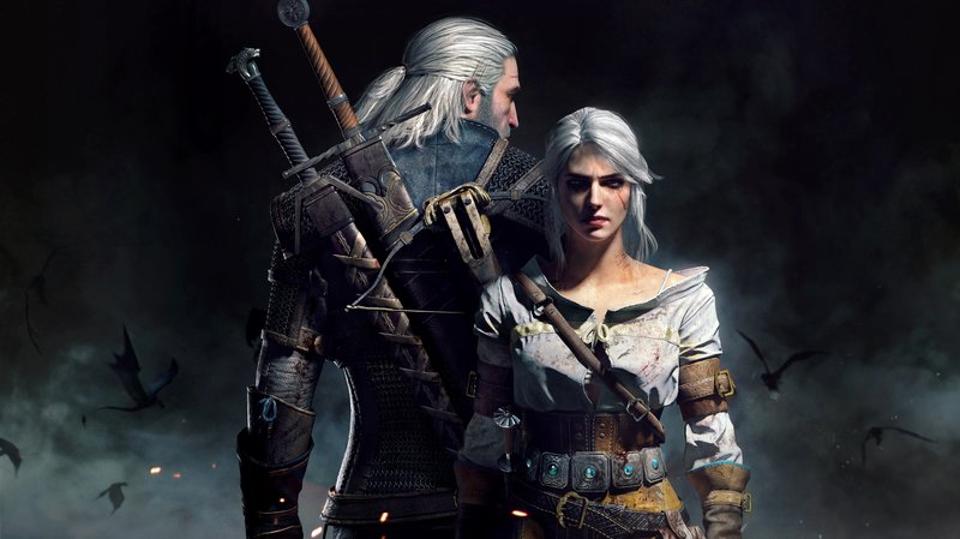
The Witcher 3‘s high quality is a blessing and a curse for the series as a whole, not least of which being that it complicates whether you should play the series out of order or not.
While The Witcher and The Witcher 2 are each good games in their own right, and should be played in order for maximum impact, neither comes close to the quality of the Witcher 3 in terms of gameplay, storytelling or most any other factor.
A big part of this is the fact that developer CD Projekt Red learned an impressive amount from their time developing the first two titles in the series, and applied that toward making The Witcher 3 the best it could be.
As a result, those wishing to play the series’ best entry first wouldn’t be remiss in starting with the last entry in the trilogy.
They’ll be treated to the best of the Witcher’s lore, side quests and story beats, all while being introduced to key elements and characters of the world that will serve them well when going back to the first two games.
Dark Souls
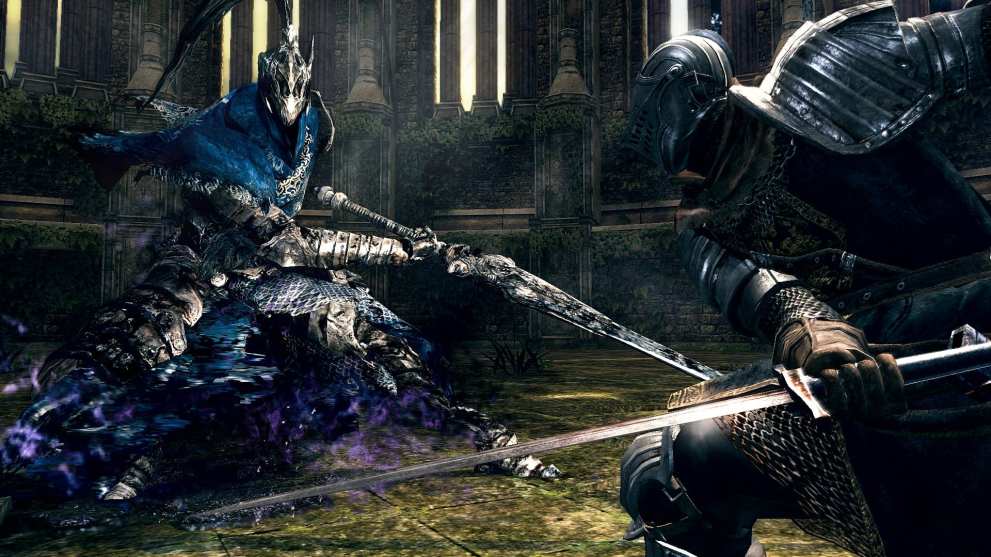
Vague as the story may be at times, Dark Souls does indeed have a timeline tied to the release order of its games. Fortunately, it’s far from the deciding factor in whether you should play the series out of order.
While it helps to know where certain enemies came from and how they tie into the broader themes of the series, Dark Souls’ gameplay and how much you enjoy it has a far bigger bearing on how much you’ll enjoy the series overall.
As captivating as the lore and characters can be, they won’t be worth much if you spend most of your time getting beaten into a pulp by the same boss over and over again.
Fortunately, this can be addressed by playing the game out of order; specifically, by playing Dark Souls 2 first, followed by Dark Souls and then Dark Souls 3.
By doing this, you’ll get a crash course in the series’ mechanics through a less punishing game in the form of Dark Souls 2.
Afterward, you can dive into the original game’s lore and bosses that the series is best known for, followed by the encapsulating lore and finale-esque elements presented by 3.
Metal Gear
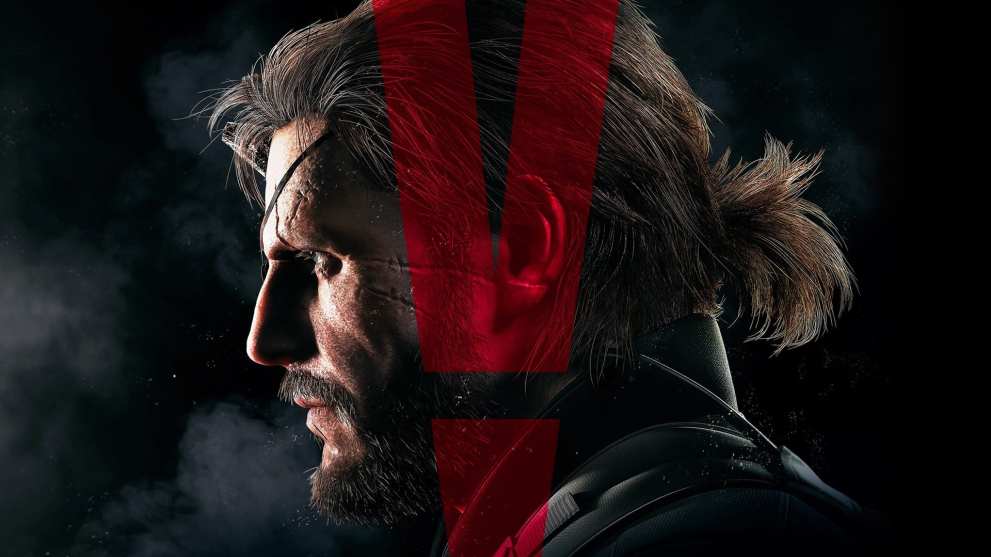
While purists will still swear by playing the series in order, there’s plenty of merit to straying from Metal Gear’s release chronology when playing through the series for the first time.
Weaving together the tale of two legendary soldiers – those being “Big Boss” Snake and his clone, Solid Snake – across over a dozen titles, the series’ story spans generations of characters on a litany of different consoles.
Likewise, each entry can contribute greatly or not at all to each half of the wider narrative, with some focusing on Big Boss’ story while others focus on Solid Snake’s.
As such, it’s not unthinkable that you’d want to play through the series as efficiently as possible, both in terms of understanding the story and saving yourself time tracking down each entry in the series as you’re playing.
If you’re looking to experience Big Boss’ side of the story first, you can start off playing Metal Gear Solid 3, Portable Ops, Peace Walker, Ground Zeroes and The Phantom Pain.
If you’re more inclined to start with Solid Snake’s narrative, you can play through Metal Gear Solid, Metal Gear Solid 2 and Metal Gear Solid 4, going back to the original Metal Gear games as well as non-canon, harder to find entries like Ghost Babel at your leisure.
Nier
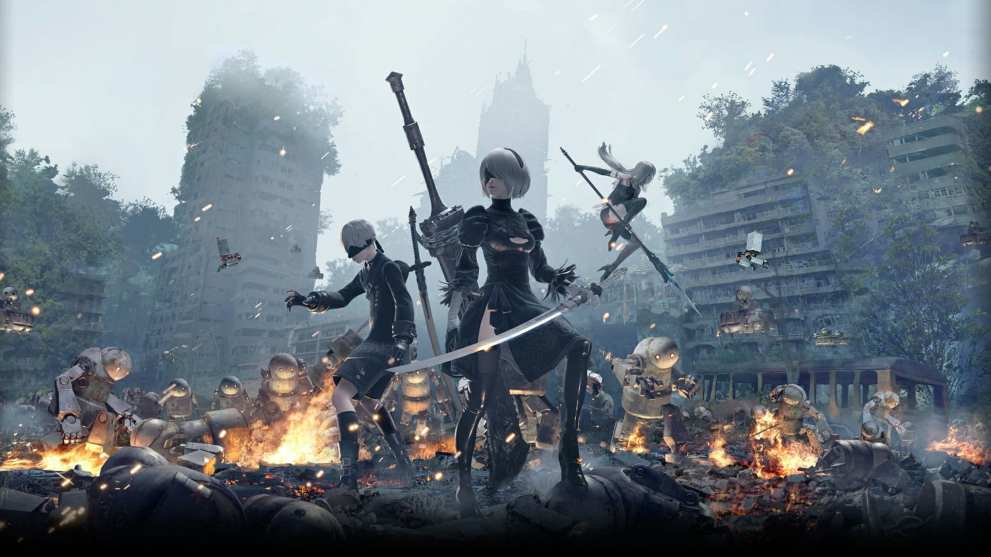
Sometimes, there are more reasons to play a series out of order than one could count. Nier is one such example of this.
Starting with the polarizing first title’s release in 2010, the series made a resurgence with the release of Nier: Automata, a drastic departure from the gameplay and world of the first game which shared only the faintest glimmers of themes and concepts.
This proved a good decision for the series overall though, as the second entry found a wider audience and higher praise compared to its predecessor.
As a result, it’s a no-brainer to say you should start with Nier: Automata. It’s a far more polished title than the first Nier, not only thanks to it coming out on a more modern console, but also due to its refinement of the concepts and ideas creator, Yoko Taro, wished to address through the series.
If the game really strikes your fancy, you can then go back to the first title and see where it all began, though be warned it won’t be the smoothest experience.
Silent Hill
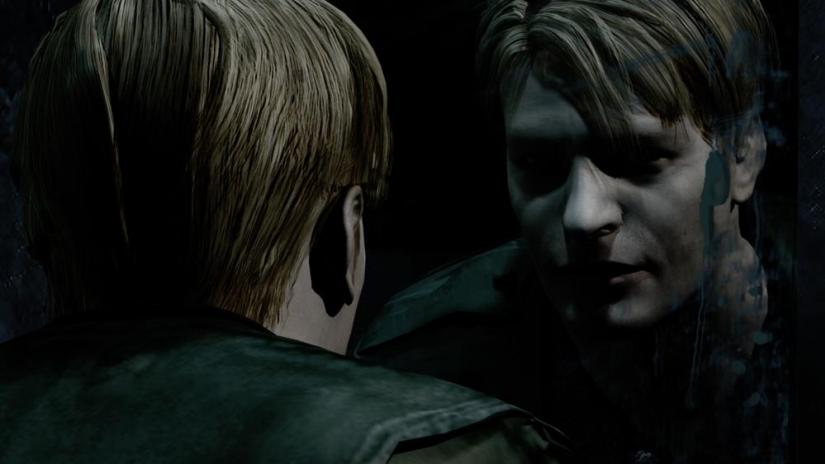
Even so many years after its last official entry, Silent Hill is still a series touted as well worth playing. the order you should play it in, though, is fairly fluid.
While there are entries in the series that share events and timelines, many of the games in Silent Hill follow different characters and narratives.
This is and was always the plan for the series’ narratives, and save for the first and third game, none of the series’ titles need to be – or should be – played in order.
There’s also the quality of each game to keep in mind.
While the first three games are typically considered the best, Silent Hill 2 is held up as the best entry bar-none and considered the game anyone should play before any other entry.
Likewise, each entry after 3 caters to different tastes. If tracking down smaller side stories within the titular town is what you’d like, Silent Hill Downpour should top your list of what to play after the initial trilogy.
On the other hand, if you’d prefer a more action-focused entry to keep your adrenaline pumping, Silent Hill: Homecoming is right up your alley.
To that end, you should play Silent Hill 2 first, followed by Silent Hill and Silent Hill 3. From there, you can play the rest of the series in whatever order you choose.
Valkyria Chronicles

Whereas other entries on this series should be played out of order for story purposes, Valkyria Chronicles takes its place based entirely on the accessibility of its current mainline entries.
Since the release of the first game in the series, Valkyria Chronicles has seen its games released on various consoles with varying forms of localization.
The first released on PlayStation 3 exclusively across all regions and was later ported to the PC. It was later ported to the PlayStation 4 and Nintendo Switch after it was remastered, making it one of the easiest entries to find.
Valkyria Chronicles 4 likewise received a wider release and localization, available on PS4, Switch, and PC across almost every region.
Other entries, however, weren’t as lucky.
The second released on the PlayStation Portable across all regions, but hasn’t been remastered since. Meanwhile, the third released on PSP exclusively in Japan and has yet to receive a localization or remaster outside of the region since.
As such, it’s best to play the first and fourth entries first. This will give prospective fans a good idea of what’s in store from the series, as well as a good view of where the series has been and where it’s going.
If they like what they see, they can then do the leg work to track down an old copy of Valkyria Chronicles 2 and a fan translation of Valkyria Chronicles 3 to fill in any gaps they may have with the series’ lore.
Red Dead Redemption
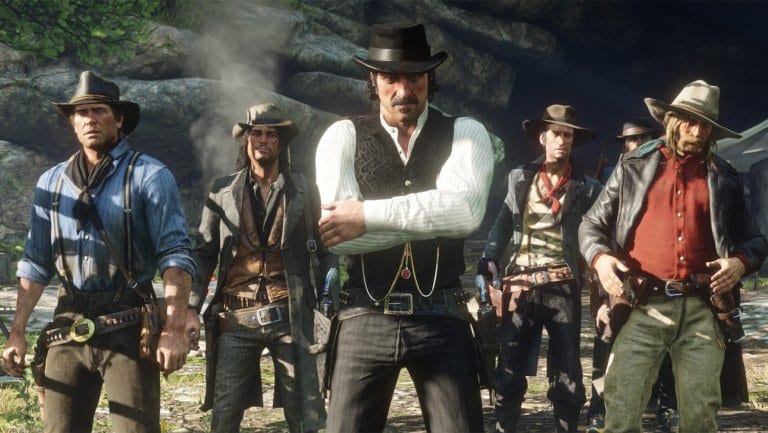
It may seem like an odd stance to take with a series that only has two entries, but newcomers should not play Red Dead Redemption’s games in order.
Telling tales of two separate outlaws dealing with the consequences of their actions in the dying West, each game is linked by an overarching narrative that can and does refer to the other.
Characters, events and consequences carry over from one game to the other, and understanding what motivated these elements greatly increases the enjoyment one can draw from the series as a whole.
However, this comes with the caveat that the games are out of order chronologically.
Red Dead Redemption 2 is a prequel to Red Dead Redemption, providing important information about events, characters and actions taken that were only briefly mentioned in the first game.
As such, players would be much better served playing the second game first. Though this means they’ll take a step down in technical quality as they make their way through the series, they’ll be privy to all of the game’s cast and characters from the start and have a better view of all of the narrative’s moving pieces to boot.
Final Fantasy
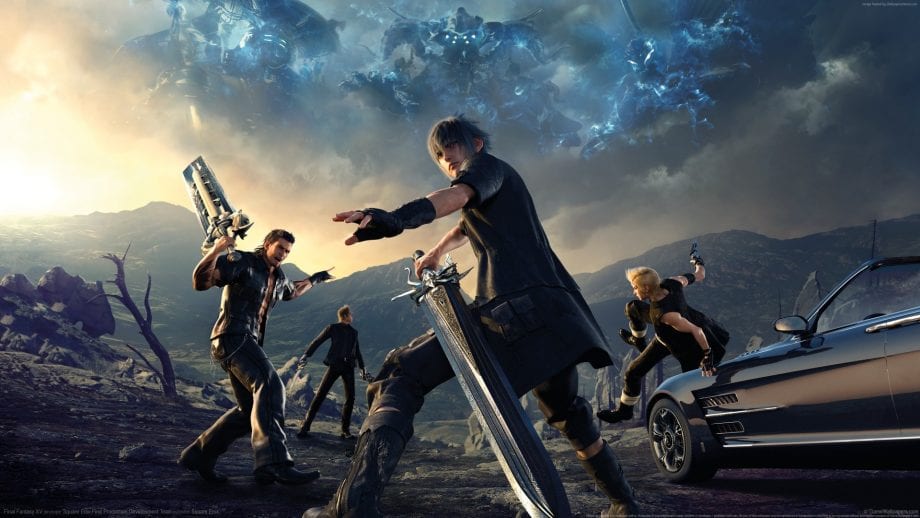
It’s a bit odd this still comes up after the series has been around for so long, but you do not, in fact, have to play through every Final Fantasy game in order to appreciate them.
Spanning decades and dozens of different consoles worth of releases, the Final Fantasy series has seen a litany of different stories told through the adventures of several different parties of heroes.
Few of them have been connected to one another save for very, very general story concepts carrying over, and which one is “the best” is still hotly debated by fans based on personal tastes, which one was the first they were exposed to and so forth.
Fortunately, this means you could play the series in whatever order you wish and still get just as much enjoyment out of it as someone who played it in release order.
Even better, you could choose to start with an entry that caters to your tastes best.
If you have a soft spot for PlayStation 2-era JRPGs with some political intrigue in their stories, Final Fantasy X or XII are great starting points.
Or, if you prefer to play some of the most renowned entries first, you can start with Final Fantasy VI or VII.
It’s all up to you, and you’ll have all the more fun for starting with the entry best fitted to your personality.
The Legend of Zelda
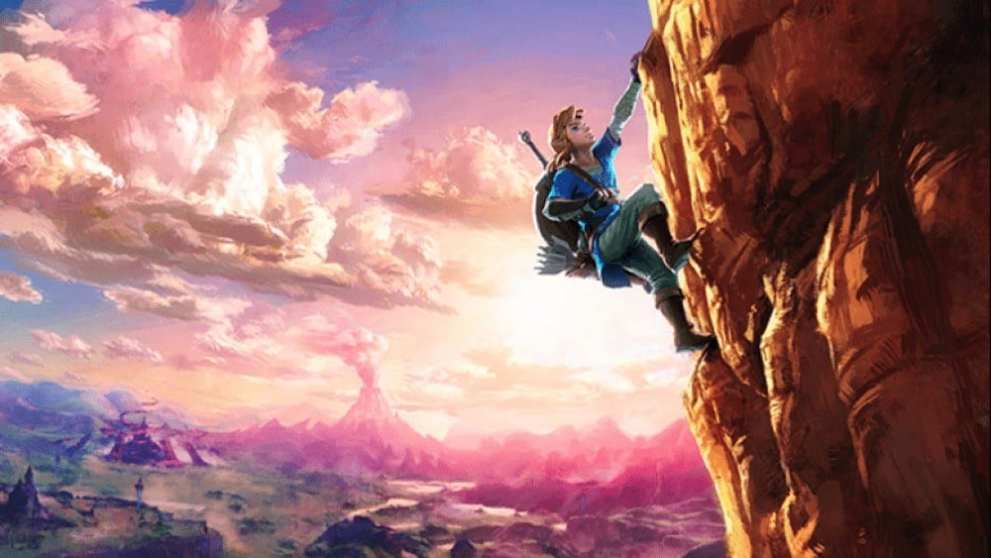
The Legend of Zelda is, and always will be, a shining example of a series where the order you play it in is totally unimportant.
While it has been confirmed that there is a timeline the series’ entries follow, any fan will tell you that it’s almost entirely unimportant which entry you start with.
Each and every one share a high level of quality, and the timeline they follow is so faint that you won’t miss anything if you aren’t aware of it to begin with.
To that end, you can start with the most recent remake of Link’s Awakening, the highly renowned Breath of the Wild, or the iconic original game, and get the same great introduction to the series’ mechanics that you’d get from any other entry.
You can then play whichever other entries you choose in whatever order you wish, experiencing awe-inspiring and captivating tales of adventure, wonder and fantasy all the while.
You’ll still have a blast with each game regardless, and if you’re like most, you’ll find a few favorites that you’ll want to go back to sans a complete run-through of the entire series.

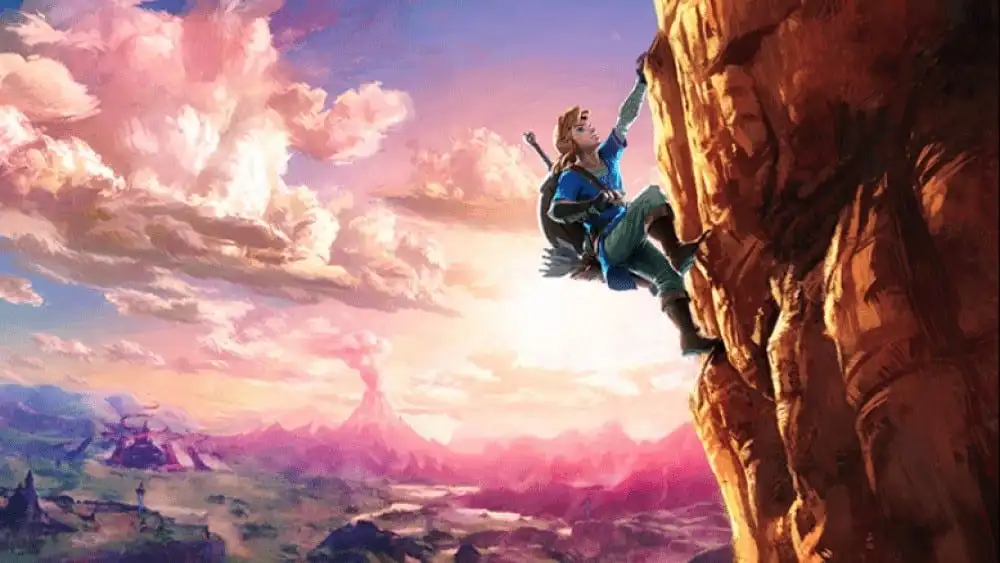



Published: Sep 23, 2019 10:35 am